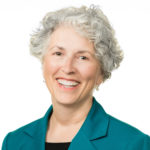
Evaluating Your Primary Care Physician
Your primary care doctor is your health quarterback. Think back. How did you choose him or her? Did you end up with your doctor by luck (or un-luck) of the draw? More importantly, are you happy with your current situation have you thought about evaluating your primary care physician?
If you’re thinking, C’mon, it doesn’t really matter, you’re mistaken. Could you imagine a coach of a winning team thinking his quarterback doesn’t really matter? That’s a sure way to a losing season. How many losing seasons of health can you afford?
As the (former) Chief of Medical Affairs of UnitedHealth Group, I’m privileged to listen to the good people of this country talk about their health care. When it comes to choosing a doctor, do you know what I’ve learned? Most of you spend more time researching your next electronic gadget than you do researching your doctor. I know that oftentimes a friend or family member may have been influential in your decision, but you still have to do your own homework. You have to think of yourself as a consumer of medicine, just like you are a consumer of an electronic gadget. Except choosing the right doctor has significantly more impact on your life (despite all the “earth-shattering” bells and whistles promised on the gadget).
[box]
Doctor Visit Preparation Worksheet
- Write down your health goals and fears, then discuss
- Tell your doctor everything: don’t be afraid of disapproval or being judged
- Don’t be afraid to respectfully question your doctor: Good doctors want engaged patients
- Bring a loved one or friend if possible
- Bring in all your medications and supplements
- Bring your “Know Your Health In Numbers” chart, which typically includes blood pressure, cholesterol, blood sugar, body mass index (BMI), and waist circumference
- Discuss any recent health developments
[/box]
All Doctors Are Not Created Equal
The fact is, all doctors are not created equal – the same goes for dentists, pharmacists and other health professionals. You’d be surprised to learn how much variation there is in quality of the medicine practiced. I’m sure they all set out for excellence. Unfortunately, not all of them arrive there.
Before I continue, let me say that I have the utmost respect and admiration for doctors. I am honored and privileged to be a member of this worthy profession. Doctors commit their lives to selfless hours of training and continued education. They are dedicated to the ideals of physician professionalism and the care and well-being of others – swearing the Hippocratic Oath to practice medicine ethically. It is one of the few jobs in the world that we literally can’t live without.
That said, as I learned in medical school and throughout my career, some doctors are stronger in certain skill sets than others. One physician might excel in lab work. Another in diagnosis. And yet another may distinguish herself in a certain specialty. The point is, in the world of medicine where excellence is variable, how do you find the best doctor for you? Here are a few questions to ask yourself about your primary physician.
One: What are you looking for?
One: What are you looking for in a doctor? Who best fits your needs and your personality? You are a special individual shaped by years of unique experiences and relationships. Typically, when your doctor has a similar value system, when there’s common ground between you, it’s easier for you to connect and communicate. (Those older adults with multiple and complex health issues – and who are particularly frail – may want to consider a geriatrician as a part of their health care team.)
This could mean the “Top Doc” on the cover of the local magazine isn’t right for you. Truth be told, many media ratings of Top Docs turn out to be little more than a popularity contest – with some doctors paying for their inclusion. Instead, your choice should come down to what role you want your doctor to play. Are you looking for a trusted confidant to whom you can tell all? Or a doctor who is more spiritually attuned? How about a doctor who plays it straight by the book – direct, and crisply professional? How about a doctor who takes more of a teacher/coach approach? Or do you need a doctor who is a strict enforcer? Knowing what characteristics best fit you will help in your assessment of the doctor you have, and will also give you a better idea of what type of doctor you’re looking for. (What quarterback will make your health team successful?)
Two: Have you communicated your expectations?
Two: Have you ever communicated your expectations to your doctor? How else are doctors to know what you need? They are awfully intuitive, but mind-reading is not a board-certified specialty. Tell them! Once a doctor knows what you’re expecting, he or she can often work toward making the necessary adjustments. As long as both parties remain respectful, this moment of resetting expectations will by no means be confrontational, or even go beyond mildly uncomfortable. (Hint: tell your doctor you’d like to talk to them about your expectations. Say, “It might prick a little, but it won’t hurt!”)
Three: What criteria are you using for evaluating your primary care physician?
Three: Because the quality of physician care is variable – and because each of you has such unique needs – I’d like you to use two criteria when deciding if you have the right doctor for you: evaluate the science and the art of medicine delivered.
First, consider the science. How does your doctor perform on what I’ll call “hard measures” such as compliance with the best evidence-based clinical practices? This means the care being delivered is consistent with the best available scientific guidelines. Much of this data is just starting to be collected, formalized, and made available by National Committee for Quality Assurance (NCQA). Go to: www.ncqa.org. External Link. Opens in new window., click on Programs, then click on Recognition. To find physician licensing information and disciplinary information, go to AIM Doc Finder at www.docboard.org. External Link. Opens in new window..
Second, how does your doctor rate in the art of medicine? This evaluation involves “softer measures” of the patient’s experience with care. For example, how well does your doctor listen and communicate with you? How easy is it to get access to the doctor and staff? Are your unique needs, values, and opinions respected and honored? Once again, the formalization and sourcing of this information is getting more robust by the day.
The Key Point to Remember
The key point I want you to remember is that a wise and prudent Dr. You has to factor the science and the art of medicine into your doctor evaluations, and discuss this in partnership with your health team. And be ready to integrate more of these performance measures into your decision-making in the months and years to come.
[box]
Learn More about Evaluating Your Primary Care Physician
- Direct Primary Care – An Idea Whose Time is Coming Back
- How to Give your Employees Access to Advanced Primary Care
- How to tell if Primary Care Offers High Value
An excerpt from “The Doctor in the Mirror”. External Link. Opens in new window. by Dr. Reed V. Tuckson. Reprinted with the permission of UnitedHealth Publishing and Reed V. Tuckson, M.D. ©2012 UnitedHealthcare Services, Inc.
[/box]








